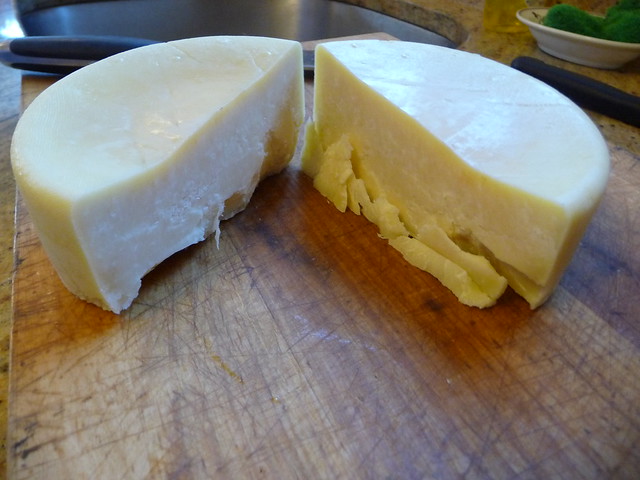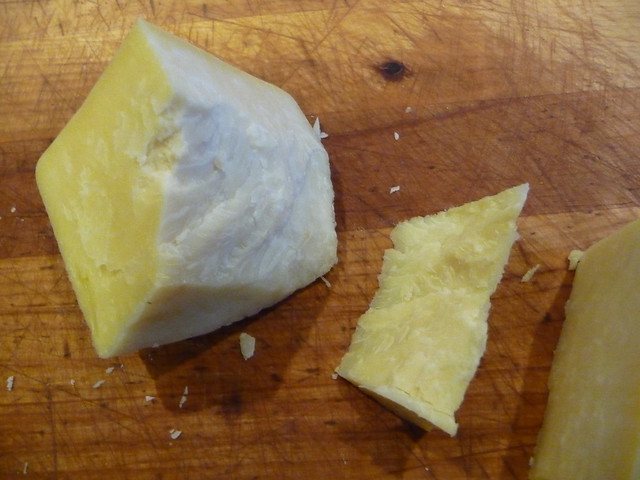Thought I would add my recent experience to this thread, as folks had mentioned overly dry Gouda. I recently cut open my first attempt at one, which had been brined and aged for about 7 weeks. I could see that the outside seemed hard and fairly dry - it had accumulated a little mold now and again and I had been scrubbing it off with vinegar and salt. Being my first time, I didn't know if the dry and tough rind was the right thing to have expected from brining or what. In any event, after about a month I oiled it with some EVOO and re-applied once a week or so, which seemed to help a little.
Last week I tried the cheese for the first time and, while it was quite enjoyable, it was far off from what I had expected. I figured I was pushing it in terms of trying the cheese early (wanted to have it available for Xmas, natch) and thought it would be a relatively bland, young Gouda-ish taste with a rubbery texture, or something like that. I have a 2nd cheese that I have continued to age so I figured no harm in eating this one and having some for folks to sample. I was quite surprised at the actual outcome!
As soon as I made the first cut to split the little wheel in half (this is a 5" diameter cheese, maybe 1.5 lbs, made in one of the small Tomme molds from cheesemaking.com, which is probably wrong-ish for this style anyhow. Other one is in a hard cheese mold), some big chunks flaked off towards the bottom of it. The texture was medium-hard and reminiscent of, say, an Asiago or similar. The flavor is nice but neutral at first, with a little bit of a parmesan-like twang and then a long, buttery finish. I like it and people seem to be enjoying it, but it's so radically different from what I expected that I thought I would make a note of it here.
I didn't really get the humidity in my fridge/cave sorted out until a little bit into the aging of this, so that may have contributed. For the first 2 weeks, temp was about 55 degrees and humidity well below 50%, probably. Remainder was done at 50-55 deg and 65-85% RH. Basically, my theory is that this is sort of an 'artificially accelerated' aging and that it has some characteristics of a year-plus old cheese and others of it's 'real' age, making the whole thing kind of un-integrated. Would be interested in thoughts on it . . . .



More pic at:
http://www.flickr.com/photos/54853699@N06/sets/72157625714683770/